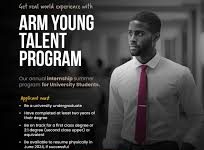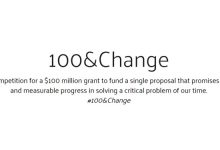Do You Have to Put All Work Experience On A Job Application?

In the competitive world of job hunting, crafting a compelling resume and cover letter is crucial to capturing the attention of potential employers. However, one question often lingers in the minds of applicants: do I have to include every single work experience on my resume and job application?
The answer is not as straightforward as one might think. While some employers may request a comprehensive employment history, others prefer a more focused approach that highlights the most relevant and transferable skills. Understanding the employer’s expectations and tailoring your application accordingly is key to making a strong first impression.
also read,
[REVEALED] How to Start Up a Company in Nigeria
Relevance: The Guiding Principle
The primary factor to consider when selecting which work experiences to include is relevance. Employers are primarily interested in candidates whose skills and experience align with the specific requirements of the open position. A cluttered resume filled with irrelevant work experiences can be overwhelming for hiring managers and may detract from your most valuable qualifications.
Focusing on Recent Experience
While diverse work experiences can demonstrate adaptability and a wide range of skills, employers typically prioritize recent experience. This is because recent roles are more likely to reflect your current capabilities and skillset. As a general rule, it is advisable to focus on work experiences from the past 10–15 years.
also read,
What Information Is Needed to Complete a Job Application?
Highlighting Impactful Contributions
Beyond relevance and recency, the impact you have made in previous roles is a crucial factor to showcase. Employers seek candidates who can demonstrate a history of success and problem-solving. Instead of simply listing job titles and responsibilities, emphasize your accomplishments by quantifying your achievements and providing specific examples of your contributions.
Addressing Gaps in Employment
Gaps in employment can sometimes raise concerns among employers. If you have periods of unemployment or non-traditional work experiences, it is advisable to address these gaps proactively in your cover letter. Provide a brief explanation of the circumstances surrounding the gap, and highlight any skills or experiences gained during that time.
also read,
Inter-University Transfer in Nigeria
Tailoring Your Application to Each Position
Avoid the temptation to use a generic resume and cover letter for every job application. Take the time to tailor your application to each specific position, using keywords from the job description and emphasizing the skills and experiences that align most closely with the requirements.
Navigating Applicant Tracking Systems (ATS)
Many employers utilize applicant tracking systems (ATS) to filter applications. ATS relies on keywords and phrases to identify qualified candidates. To ensure your application passes through the ATS, incorporate relevant keywords from the job description throughout your resume and cover letter.
When Less is More: The Case for Targeted Applications
In today’s competitive job market, quality over quantity often prevails. A well-crafted, targeted application that highlights your most relevant and impactful experiences is more likely to capture the attention of potential employers than a lengthy resume filled with irrelevant details.
also read,
How to Open A Security Company in Nigeria
Conclusion: Striking the Right Balance
Deciding which work experiences to include on a job application requires careful consideration of relevance, recency, impact, and the specific requirements of the position. By striking the right balance between showcasing your diverse experiences and highlighting your most valuable skills, you can create a compelling application that increases your chances of landing an interview. Remember, the goal is to present yourself as the most qualified candidate for the job, not to simply list every work experience from your past.















